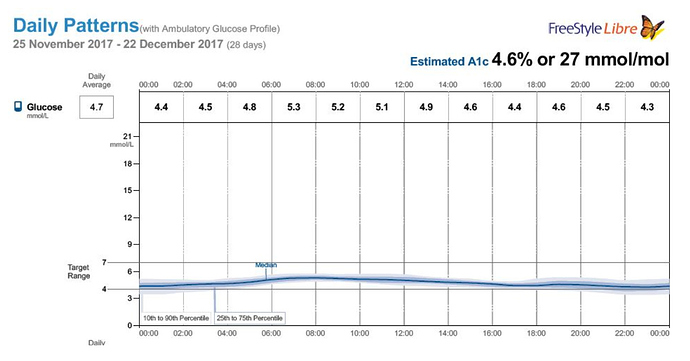Mice…You really have to be careful with mice studies. Often the “low carb” or “keto” diet given to them is filled with PUFAs, which will cause you to become obese.
Anyway, consider this. There are two sets of “rules”. One for high carb people and one for low carb/keto people. If your (morning) blood sugar is going up (EDIT:) on high carb (END EDIT), is that bad? Probably so.
What if your morning blood sugar is going up if you’re low carb? Is that bad? Probably not. You have to realize that your body needs some amount of blood sugar (though it’s unclear exactly WHY this is true). The morning effect is a high insulin resistance (maybe, insulin sparing?) effect, so you get higher blood sugar. But that type of blood sugar is not bad for you (to any extent I can see).
Consider my data:
You’ll note that my blood sugar is highest in the morning (I do not eat breakfast, 99% of the time anyway), yet goes down all day. It ends up being lowest at night. By the way, multiply by 18 to get US numbers.
Note the estimated A1c, even though my blood sugar is “high” in the morning. Now, my actual A1c is slightly higher than that, 5.1 for the last few times I took it, but that is based on many factors, such as how long red blood cells last.
I personally am not concerned about “higher” morning blood sugar. But if you are concerned, you can do things like eat earlier, take some apple cider vinegar before bed, etc., which will help to lower your morning blood sugar.
Before you do that, though, I’d take more blood tests during the entire day, to see what your blood sugar really is.





